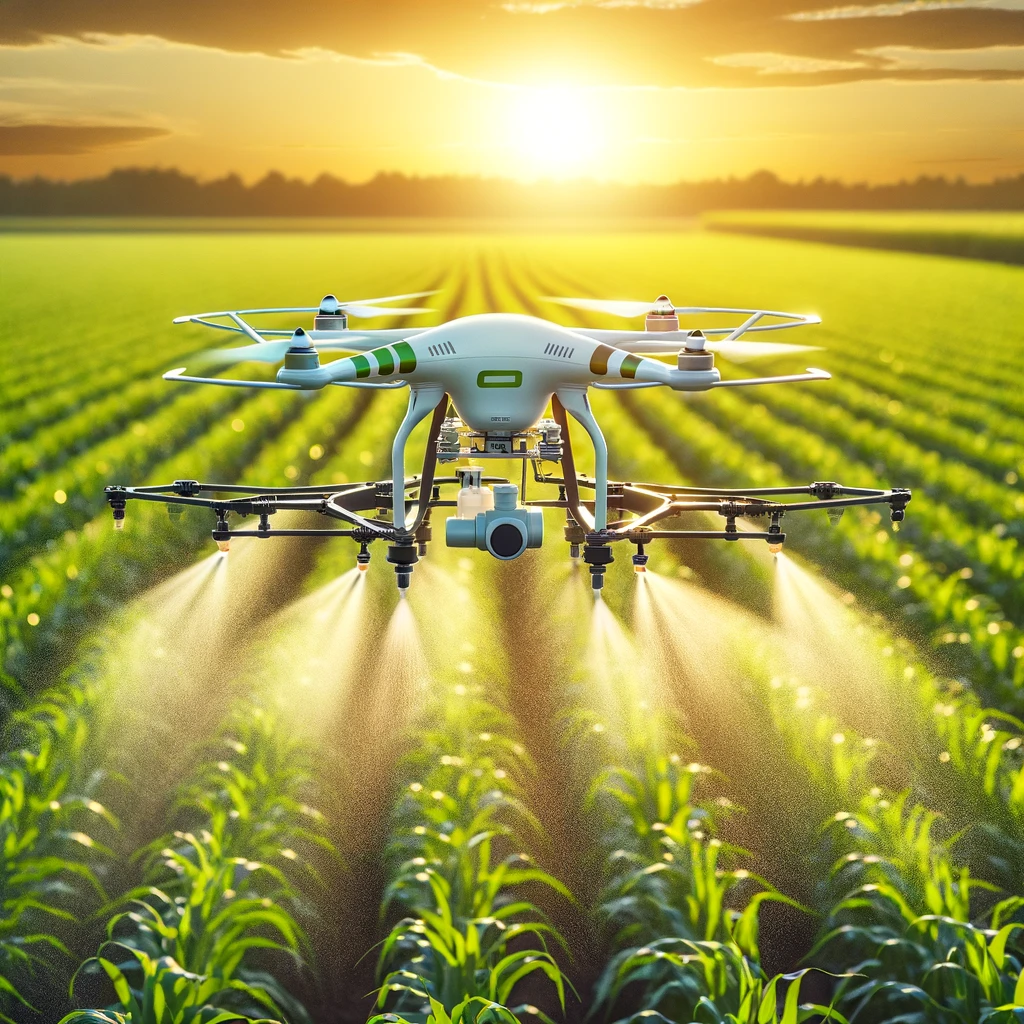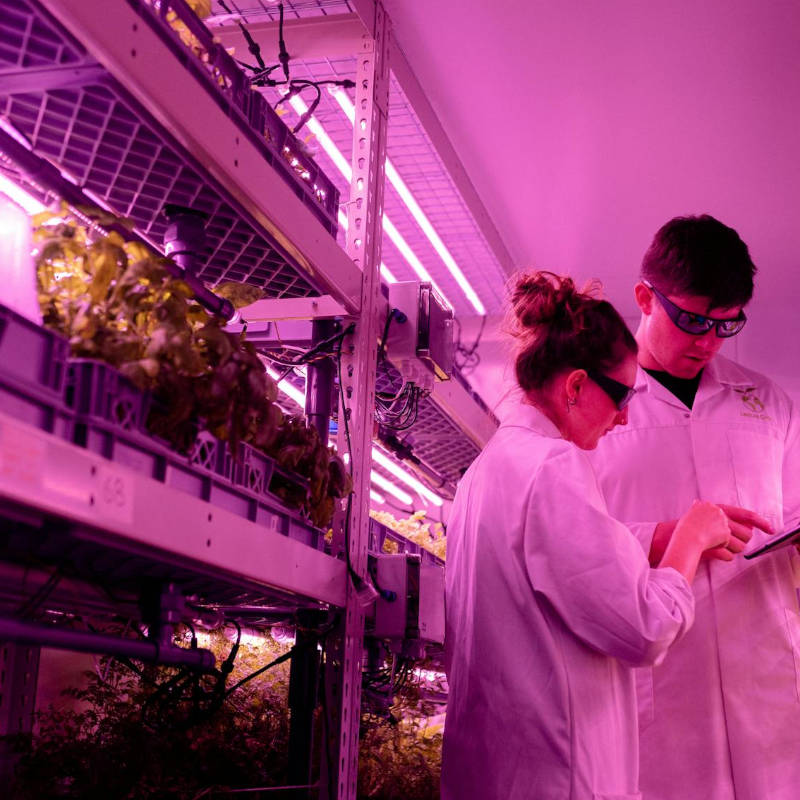Taking Off: How Agrotech Innovations are Transforming Food Logistics

In the fast-paced world of the food industry, where efficiency and sustainability are increasingly becoming the linchpins of success, agrotech innovations are playing a pivotal role in reshaping food logistics. As we delve into this transformative era, it’s clear that technology is not just an enabler but a driving force that is redefining how food is grown, harvested, transported, and delivered to consumers. This article explores the myriad ways in which agrotech is revolutionizing food logistics, offering insights into the future of food supply chains.
The Dawn of Agrotech Innovations
Agrotech, a blend of agriculture and technology, encompasses a wide array of innovations, from precision farming and drone technology to blockchain and artificial intelligence (AI). These technologies are converging to address some of the most pressing challenges in food logistics, including food waste, supply chain inefficiencies, and the increasing demand for transparency and sustainability from farm to fork.
Precision Farming: The Foundation of Efficient Food Logistics
At the heart of agrotech’s impact on food logistics is precision farming. This approach uses data and analytics to optimize farming practices, ensuring that crops receive exactly what they need for optimal growth. Sensors, satellites, and software work in harmony to monitor crop health, soil conditions, and weather patterns, enabling farmers to make informed decisions that reduce waste and improve yields. By maximizing the efficiency of the farming process, precision farming lays the groundwork for a more streamlined and sustainable supply chain.
John Deere, a name synonymous with agricultural equipment, is at the forefront of integrating precision farming technologies into its machinery. The company’s innovative solutions, such as the John Deere Operations Center, exemplify how data and connectivity can revolutionize traditional farming practices.
The Operations Center serves as a digital hub for farmers, allowing them to collect and analyze data from their equipment in real-time. This platform provides insights into soil health, crop conditions, and weather patterns, enabling farmers to make data-driven decisions that optimize yield and resource usage. For instance, by analyzing data collected from various sensors, farmers can determine the precise amount of water, fertilizers, and pesticides required for different parts of their land, thereby reducing waste and environmental impact.
John Deere’s commitment to precision farming extends to its machinery as well. Their tractors and harvesters are equipped with advanced technologies like GPS guidance and automated steering systems. These features ensure that planting, fertilizing, and harvesting are carried out with maximum efficiency and minimal overlap, saving time, fuel, and resources.
By integrating precision farming technologies into their operations,
John Deere is not only helping farmers increase productivity and sustainability but also reshaping the logistics of food production, from soil to supermarket.
Drone Technology: A Bird's Eye View of Efficiency
Drones are transforming food logistics by providing a bird’s eye view of agricultural lands. Equipped with advanced imaging technology, drones can survey vast areas quickly, identifying issues like pest infestations, water stress, and nutrient deficiencies. This real-time data allows for swift interventions, minimizing crop damage and ensuring that the supply chain remains uninterrupted.
Furthermore, drones are being used for aerial seeding and spraying, reducing the need for manual labor and enhancing the precision of these tasks.
A company harnessing the power of drone technology to enhance agricultural efficiency is DJI, a leader in commercial drone innovation. DJI’s agricultural drones, such as the Agras series, are specifically designed to support precision agriculture. These drones are equipped with advanced features like multispectral imaging and AI-powered analysis, enabling farmers to monitor crop health, moisture levels, and even pest infestations from the sky.
DJI’s drones can cover vast areas of farmland in a fraction of the time it would take through traditional methods, providing critical data that can be used to make informed decisions about irrigation, fertilization, and crop rotation. This not only boosts productivity but also contributes to sustainable farming practices by ensuring resources are used efficiently and sparingly.
Furthermore, DJI’s Agras drones are revolutionizing the way farmers apply pesticides and fertilizers. With precision spraying, these drones reduce the amount of chemicals needed, minimizing environmental impact and lowering costs for farmers. By leveraging drone technology, DJI is not just improving the bottom line for agricultural businesses but also paving the way for a more sustainable and efficient future in food logistics.
Blockchain: The Backbone of Transparency and Traceability
In the complex web of food logistics, transparency and traceability are paramount. Consumers and regulators increasingly demand to know the journey of food products from farm to table. Blockchain technology offers an immutable ledger for recording transactions and tracking food products throughout the supply chain. By providing a transparent record of a product’s journey, blockchain enhances consumer trust and facilitates the rapid identification and resolution of issues, such as food contamination, thereby reducing waste and improving safety.
IBM Food Trust is a prominent example of a real-world application of blockchain technology, aimed at enhancing transparency and traceability in the food supply chain. Leveraging the power of blockchain, IBM Food Trust offers a secure and immutable platform where every transaction and movement of food products can be recorded and accessed by authorized participants across the supply chain.
From farmers and processors to distributors and retailers, each stakeholder can upload and verify data related to the origin, processing, and handling of food items. This level of transparency ensures that in the event of a food safety issue, the source can be quickly identified, potentially limiting the scope of recalls and reducing the risk to consumers.
Moreover, IBM Food Trust enables consumers to gain insights into the journey of their food products, from farm to fork. By scanning a QR code, customers can access detailed information about the origin of the product, its journey through the supply chain, and its compliance with quality standards. This not only builds consumer trust but also encourages responsible production practices among suppliers.
IBM Food Trust exemplifies how blockchain technology can revolutionize food logistics, making it safer, more efficient, and consumer-friendly by ensuring unparalleled traceability and transparency throughout the supply chain.
Artificial Intelligence: The Brain Behind Smart Logistics
AI is the brain that is making food logistics smarter and more responsive. From predictive analytics that forecast demand and optimize inventory levels to machine learning algorithms that route deliveries in the most efficient way, AI is at the forefront of logistical innovation. In the context of agrotech, AI-driven robots are being deployed for harvesting, packing, and sorting, streamlining these processes and reducing the reliance on manual labor. Moreover, AI enhances decision-making by analyzing vast datasets, offering insights that lead to more resilient and responsive supply chains.
A standout example of a company leveraging artificial intelligence (AI) to revolutionize food logistics is Blue River Technology, a subsidiary of John Deere. Known for their innovative use of AI in agriculture, Blue River Technology has developed the “See & Spray” technology, which exemplifies the transformative potential of AI in enhancing the efficiency and sustainability of food production and logistics.
“See & Spray” technology employs advanced computer vision and machine learning algorithms to differentiate between crops and weeds in real-time. Mounted on agricultural equipment, this smart system can precisely target and apply herbicides to weeds, leaving the surrounding crops unaffected. This precision reduces the amount of chemicals used in farming, leading to significant cost savings for farmers and minimizing the environmental impact.
Moreover, the data collected by the “See & Spray” system provides valuable insights into crop health and weed density, enabling better decision-making for future planting, harvesting, and crop management practices. This level of precision and efficiency in targeting weeds not only optimizes the agricultural process but also has a downstream effect on the entire food supply chain, reducing waste and improving the quality of produce reaching the market.
By harnessing AI in such innovative ways, Blue River Technology is not just advancing agricultural practices but is also setting new standards in food logistics, ensuring that the journey from farm to table is as efficient, sustainable, and environmentally friendly as possible.
The Road Ahead: Sustainable and Consumer-Centric Food Logistics
As agrotech continues to evolve, the future of food logistics looks promising, with sustainability and consumer satisfaction at its core. Innovations like vertical farming and lab-grown meat are set to further disrupt the industry, reducing the environmental impact of food production and offering new solutions to feed the growing global population. Meanwhile, the integration of IoT devices and smart packaging will enable real-time monitoring of food conditions during transit, ensuring that products arrive fresh and safe to consume.

Agrotech innovations are undeniably transforming food logistics, making it more efficient, transparent, and sustainable. As these technologies continue to mature and integrate, the entire food supply chain stands to benefit, from farmers and distributors to retailers and consumers. The journey ahead is exciting, with endless possibilities for further innovation and improvement. For businesses in the food industry, staying abreast of these technological advancements and embracing agrotech solutions will be key to navigating the future of food logistics successfully. In this transformative era, those who leverage technology to enhance their operations will not only thrive but also contribute to a more sustainable and efficient global food system.




